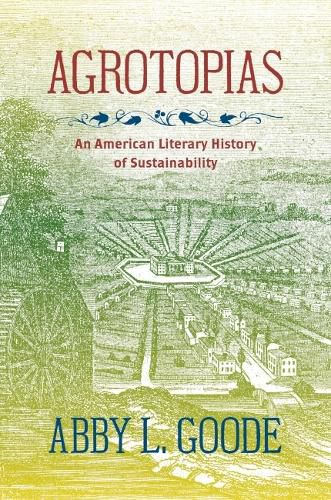Readings Newsletter
Become a Readings Member to make your shopping experience even easier.
Sign in or sign up for free!
You’re not far away from qualifying for FREE standard shipping within Australia
You’ve qualified for FREE standard shipping within Australia
The cart is loading…






In this book, Abby L. Goode reveals the foundations of American environmentalism and its enduring connections to racism, eugenics, and agrarian ideals. Throughout the nineteenth century, writers as diverse as Martin Delany, Charlotte Perkins Gilman, and Walt Whitman worried about unsustainable conditions such as population growth and plantation slavery. In response, they imagined agrotopias-sustainable societies unaffected by the nation’s agricultural and population crises-elsewhere. Though seemingly progressive, these agrotopian visions depicted selective breeding and racial improvement as the path to environmental stability. In this fascinating study, Goode uncovers an early sustainability rhetoric interested in shaping, just as much as sustaining, the American population.
Showing how ideas about race and reproduction were central to early sustainability thinking, Goode unearths an alternative environmental archive that ranges from gothic novels to Black nationalist manifestos, from Waco, Texas, to the West Indies, from city tenements to White House kitchen gardens. Exposing the eugenic foundations of some of our most well-regarded environmental traditions, this book compels us to reexamine the benevolence of American environmental thought.
$9.00 standard shipping within Australia
FREE standard shipping within Australia for orders over $100.00
Express & International shipping calculated at checkout
In this book, Abby L. Goode reveals the foundations of American environmentalism and its enduring connections to racism, eugenics, and agrarian ideals. Throughout the nineteenth century, writers as diverse as Martin Delany, Charlotte Perkins Gilman, and Walt Whitman worried about unsustainable conditions such as population growth and plantation slavery. In response, they imagined agrotopias-sustainable societies unaffected by the nation’s agricultural and population crises-elsewhere. Though seemingly progressive, these agrotopian visions depicted selective breeding and racial improvement as the path to environmental stability. In this fascinating study, Goode uncovers an early sustainability rhetoric interested in shaping, just as much as sustaining, the American population.
Showing how ideas about race and reproduction were central to early sustainability thinking, Goode unearths an alternative environmental archive that ranges from gothic novels to Black nationalist manifestos, from Waco, Texas, to the West Indies, from city tenements to White House kitchen gardens. Exposing the eugenic foundations of some of our most well-regarded environmental traditions, this book compels us to reexamine the benevolence of American environmental thought.